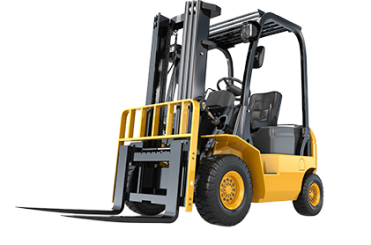Vital Tips for Handling Heavy Tools Rental Contracts and Logistics Properly
Successfully managing heavy equipment rental contracts and logistics is essential for the success of any project that depends on these resources. An extensive understanding of rental terms, coupled with accurate analysis of equipment requirements, lays the structure for beneficial negotiations.
Understand Rental Terms
Understanding rental terms is important for successful hefty equipment management. Experience with the particular terms of a rental contract can significantly affect operational effectiveness and cost-effectiveness. Secret components generally consist of rental duration, payment structure, and upkeep obligations. The rental period defines the timeframe for which the equipment is rented, influencing budgeting and project timelines. Repayment structures often differ, including daily, weekly, or regular monthly rates, which necessitate specific computations to prevent unanticipated costs.
In addition, it is important to understand the upkeep responsibilities detailed in the arrangement. Typically, rental business preserve the equipment, but comprehending who is in charge of regular checks and repairs is essential to stop operational interruptions. In addition, terms might consist of provisions worrying obligation for damages or theft, which can have significant financial effects if not correctly comprehended.

Assess Tools Requirements
Evaluating equipment requirements is a crucial step for any project manager aiming to enhance resource allotment and improve functional performance. This process entails a thorough examination of the project requirements, including details tasks, timelines, and the sort of tools required to attain desired end results.
Begin by determining the extent of the project and the tasks that will be performed. Take into consideration aspects such as the surface, the scale of procedures, and any kind of prospective difficulties that might affect tools selection. Engaging with team participants who will operate the machinery can give beneficial insights right into useful requirements and choices.

Next, evaluate the capacity and capabilities of readily available tools options. It is important to match the ideal tools to the jobs at hand, guaranteeing that it can handle the expected workload without jeopardizing security or efficiency.
Furthermore, element in the rental duration and frequency of usage. Comprehending these components can aid identify whether buying or renting out is the most cost-efficient remedy. By conducting a detailed analysis of equipment needs, project managers can make educated choices that lead to boosted performance and minimized functional expenses.
Negotiate Successfully
Once the equipment needs are clearly recognized, the following action includes reliable settlement with rental firms to secure favorable terms. Begin by researching numerous rental firms to recognize their prices frameworks, stock schedule, and online reputation.
When coming close to the negotiation table, be clear about your requirements, including the kind of devices, rental duration, and any extra services you may need. This transparency enables rental firms to offer tailored services that can satisfy your particular demands (mini excavator rental). Don't hesitate to ask for discount rates, especially for long-lasting services or mass orders, as numerous business want to supply concessions to safeguard larger contracts
In addition, think click for source about discussing terms connected to maintenance, distribution, and insurance policy fees. These elements can considerably influence the overall cost and should be clearly outlined in the rental contract. Make certain that all agreed-upon terms are documented in creating to protect against misconceptions and protect your rate of interests throughout the rental period. Efficient settlement not just causes cost financial savings however also develops a favorable partnership with the rental firm.
Coordinate Transport Logistics
Coordinating transport logistics is an important facet of handling heavy devices rental arrangements. Reliable transportation guarantees that tools is delivered on schedule and in optimum condition, thus minimizing downtime and enhancing task performance. To read here achieve this, it is necessary to develop an extensive logistics prepare that outlines the whole transportation procedure from pickup to shipment.
Begin by analyzing the particular transport needs based upon the type and dimension of the tools entailed - aerial lift rental. Engage with reputable transport providers that specialize in heavy devices to guarantee they possess the necessary know-how and tools, such as flatbed vehicles or specialized trailers. Review variables such as weight restrictions, route limitations, and required authorizations to avoid unforeseen delays
In addition, keep open interaction with both the rental firm and the transport company to work with routines efficiently. By diligently working with transportation logistics, you can maintain the stability of your rental agreement and help with smooth job execution.
Prepare For Upkeep and Support

Additionally, it is essential to connect straight with the rental copyright concerning upkeep responsibilities. Some agreements may consist of upkeep as part of the rental solution, while in other instances, the onus may fall on the tenant. Comprehending these terms will assist prevent unanticipated costs and responsibilities.
On top of that, having access to technological support can be important. Guarantee that the rental business uses 24/7 support or an emergency call, enabling swift resolution of any kind of devices concerns. Educating your team on appropriate equipment use and routine checks can likewise substantially enhance functional effectiveness.
Final Thought
In verdict, effective monitoring of hefty devices rental agreements and logistics hinges on a complete understanding of rental terms, exact evaluation of devices requirements, and article source skilled negotiation abilities. Stressing clear communication with all stakeholders remains important in browsing the complexities of devices rental and logistics management.
Properly taking care of heavy equipment rental arrangements and logistics is crucial for the success of any job that counts on these sources. By thoroughly examining and understanding these rental terms, services can make informed decisions, mitigate risks, and make sure that their heavy devices administration lines up with task goals and economic constraints.Working with transport logistics is an important facet of taking care of hefty tools rental contracts.In verdict, efficient administration of heavy equipment rental arrangements and logistics hinges on an extensive understanding of rental terms, specific assessment of equipment needs, and skilled negotiation skills. Stressing clear interaction with all stakeholders remains critical in navigating the complexities of devices service and logistics administration.